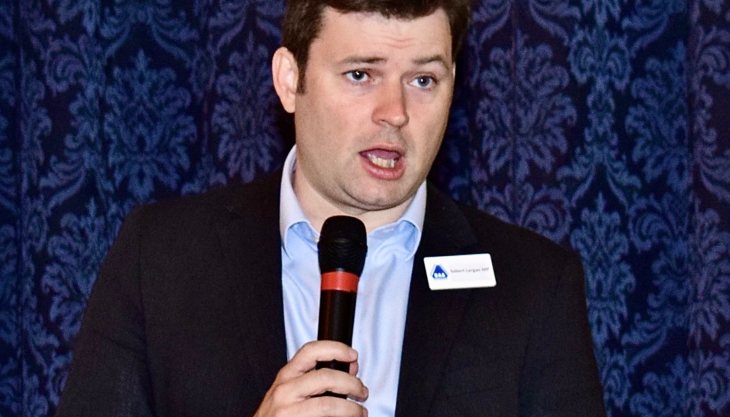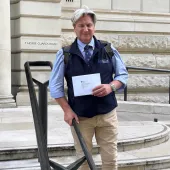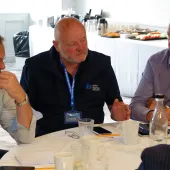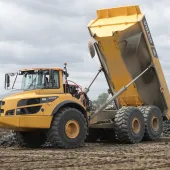High Peak MP opens BAA Annual Meeting 2021

British Aggregates Association returns to the Palace Hotel in Buxton to host ‘live’ annual meeting
THE British Aggregates Association (BAA) was back in real life, face-to-face at the Palace Hotel, Buxton, in Derbyshire, for its annual meeting on 21 June. Those who attended agreed it made a pleasant change from Zoom.
Some 80 people, keeping a suitable distance from each other and wearing masks when they moved around, had registered for the event.
A focus of the meeting was the mineral industry’s social and environmental impact, with Robert Largan, the Conservative MP for High Peak who was elected for the first time in 2019, setting the scene to open the meeting.
He said his High Peak constituency probably has more quarries than any other and he praised the industry for its contribution to the economy of the area and the country as a whole.
He said aggregates are essential to how the UK bounces back from the pandemic restrictions of the past 18 months, playing a vital part in the Government’s ambitious plans for infrastructure development. Part of that is the launching of the UK Infrastructure Bank, intended to level up and make Britain Green.
Mr Largan (pictured) said: ‘Just last week I was working with volunteers on levelling a path round a huge reservoir using aggregate that had been donated by a local quarry, which is a nice symbol of the vital role the industry plays here.’
He said he is optimistic about the future, including the future of the minerals industry. The Government’s guarantee of lifetime skills would help people see a career path in industries such as quarrying, making sure the people needed could be recruited.
The MP conceded that the Government was ambitious with its Net Zero target for 2050 and said he hoped it would understand the aggregates industry and work with it. He said there were people in parliament who greatly valued the aggregates industry and wanted to champion it.
He also conceded the Government had borrowed a ‘staggering amount of money’ but described it as the least worst option open to it. The debt would be a burden, he said, but not investing in infrastructure would be worse because the UK had to be able to attract key industries. Investment had been disproportionately focused in the South East to the detriment of the rest of the country and now it would be spread through the rest of the UK.
The questions he was asked included the issue of red diesel being withdrawn from quarry operators. As one questioner said: ‘It’s supposed to benefit the environment but changing from one diesel to another isn’t going to help. The Government should not treat people as children, telling them stories, but should come clean.’
Robert Largan agreed. ‘The Government needs to treat people as adults and be much more honest,’ he said.
Many of these themes were also addressed in the seminar sessions. Viv Russell, managing director of Longcliffe who chairs the Institute of Quarrying and the Quarries National Joint Advisory Committee (QNJAC), led one. It was a panel discussion that included Colin Mew, HM Principal Inspector with the Health and Safety Executive; James Thorne, chief executive of the Institute of Quarrying; and John Wilkinson, chief executive of the Mineral Products Qualification Council.
The second seminar was about quarry restoration and biodiversity, presented by Andy Littler. There were also six cameo presentations and the stands of six exhibitors. Full coverage of the BAA annual meeting will appear in the August edition of Quarry Management.









